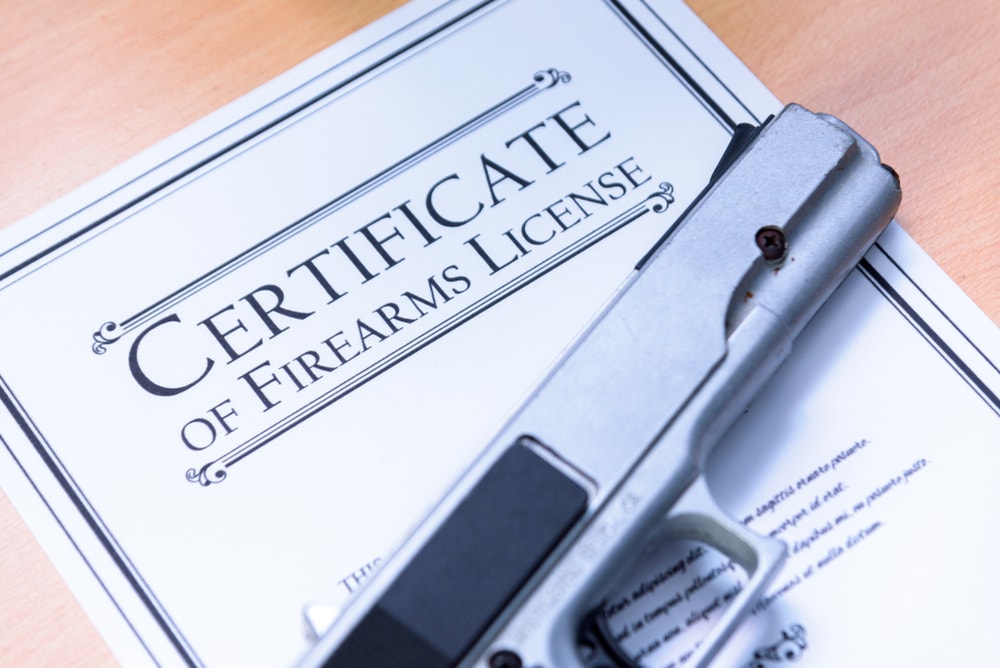How Long After a Domestic Violence Charge Can I Own a Gun in Arizona?

Domestic violence charges may carry serious legal consequences beyond potential jail time and fines. In Arizona, a domestic violence conviction can restrict your right to own or possess a firearm, a right protected by both federal and state laws. To defend your rights and freedom, you should get strong legal representation from a proven Arizona criminal defense lawyer for domestic violence allegations.
Domestic Violence Charges and Firearm Restrictions in Arizona
Arizona law categorizes domestic violence as a serious offense, and it is closely tied to specific gun laws. When an individual is convicted of a domestic violence charge, one of the most significant consequences is the restriction on owning or possessing firearms.
Federal Law: 18 U.S.C. § 922(g)(9)
Under federal regulations, anyone convicted of a misdemeanor crime of domestic violence is prohibited from owning or possessing a firearm. This prohibition applies to any crime that involves the use or attempted use of physical force or the threat of deadly force against a family member or intimate partner. The federal restriction is indefinite and applies nationwide, meaning it supersedes state law.
Arizona Law: A.R.S. § 13-3601 and A.R.S. § 13-3101
Arizona law works in conjunction with federal law regarding domestic violence convictions. A conviction under Arizona Revised Statute (A.R.S.) § 13-3601 for domestic violence does not immediately and automatically restore your right to possess a firearm. This is compounded by A.R.S. § 13-3101, which restricts individuals convicted of domestic violence from possessing firearms unless their rights are restored through a legal process.

How Long After a Domestic Violence Conviction Can You Own a Gun in Arizona?
The length of time it takes to regain the right to own a firearm after a domestic violence conviction largely depends on the following factors:
The Nature of the Conviction (Misdemeanor vs. Felony)
- Misdemeanor Domestic Violence Convictions: A conviction for misdemeanor domestic violence under Arizona law results in a lifetime ban under federal law from owning or possessing a firearm, unless the individual has their civil rights restored by the court. Arizona law provides a pathway for restoring civil rights, including firearm rights, but the individual must first complete all terms of their sentence, such as probation or any imposed fines.
- Felony Domestic Violence Convictions: If the domestic violence charge is classified as a felony, the consequences are even more severe. In addition to losing the right to own or possess firearms, a felony conviction strips an individual of several civil rights, including voting and serving on a jury. Arizona law does provide the opportunity to restore these rights, including firearm rights, but the process is more complex and requires a waiting period.
Completion of Sentencing Terms
Before petitioning for the restoration of firearm rights, you must complete the terms of your sentence, which may include jail time, probation, and any fines or restitution ordered by the court.
- Misdemeanor Domestic Violence: Once all sentencing terms are completed, you may be eligible to file a petition with the court to have your civil rights restored, including your right to possess a firearm.
- Felony Domestic Violence: Arizona law typically requires first-time offenders to wait two years after completing their sentence before filing a petition to restore firearm rights. For individuals with multiple felony convictions, the waiting period is extended to five years.
Petitioning the Court for Firearm Rights Restoration
To regain the right to own or possess a firearm after a domestic violence conviction, you must petition the court to restore your civil rights. This process involves several steps:
- Misdemeanor Convictions: If convicted of a domestic violence misdemeanor offense, you must submit a petition for the restoration of civil rights to the court. If the court grants your petition, your right to possess a firearm may be restored, but only after federal authorities lift the lifetime ban.
- Felony Convictions: Individuals convicted of a felony domestic violence offense must file a petition in the Superior Court to restore their civil rights. The court will consider factors such as the nature of the offense, the time elapsed since the conviction, and whether the individual has been rehabilitated.
Can You Own a Gun if the Domestic Violence Charge Was Dropped or Dismissed?
If the domestic violence misdemeanor crimes charge was dropped, dismissed, or resulted in an acquittal, you may retain your right to possess firearms. However, if a protective order or restraining order was issued against you, that order may still restrict your firearm possession for its duration.
Protective Orders and Firearm Possession
Even without a conviction, being subject to a domestic violence protective order can result in a temporary loss of firearm rights. In Arizona, if a protective order (commonly known as an order of protection) is issued, it may contain a provision prohibiting firearm possession for the duration of the order.
These orders can be extended or made permanent depending on the circumstances of the case but once they expire or are lifted, your firearm rights may be reinstated unless you have other disqualifying convictions.
Steps to Restoring Gun Rights After an Arizona Domestic Violence Conviction
To restore your firearm rights after a domestic violence conviction in Arizona, follow these key steps:
- Get Legal Representation: Consult an experienced Arizona criminal defense attorney with experience defending clients charged with domestic violence offenses and facing firearm prohibitions.
- Petition the Court: File a formal petition with the court requesting the restoration of your civil rights, including the right to possess firearms. You must have completed all terms of your sentence, such as probation, fines, or community service.
- Attend Court Hearings: Be prepared to attend court hearings where a judge will review your petition. Your attorney will present evidence to show you are eligible and have been rehabilitated and no longer present a credible threat.
- Comply with Court Orders: If the court imposes any additional conditions or requirements, you must comply fully to avoid further legal issues. Failure to follow these orders could result in the denial of your petition.
- Federal Background Check: Even if the state court restores your firearm rights, you may still be subject to a federal court background check to ensure compliance with federal laws prohibiting gun ownership after domestic violence convictions.
Legal Defenses and Restoration of Gun Rights
There are potential legal defenses available to challenge charges of domestic violence misdemeanors or an arrest made by an appropriate law enforcement agency in domestic violence cases, such as:
- False Accusations: Demonstrating that the domestic violence allegations by family members are false or were made maliciously.
- Lack of Evidence: Arguing that there is insufficient evidence to prove the domestic violence charge beyond a reasonable doubt.
- Self-Defense: Establishing that your actions were in self-defense, which may result in the charges being dismissed or reduced.
Choose Our Experienced Domestic Violence Attorneys in Arizona
If you are facing domestic violence charges in Arizona, your freedom, rights, and future are all on the line. At the Law Office of Hernandez & Hamilton, PC, our relentless defense attorneys have the experience, skill, and tenacity needed to fight these charges head-on. We are committed to protecting your rights and defending your case with determination. Don’t let fear or false accusations dictate your life—reach out to us today, and let us put our 90+ years of collective legal experience to work in your defense. To schedule your free consultation, call us 24/7 at 520-882-8823 or contact us online.





